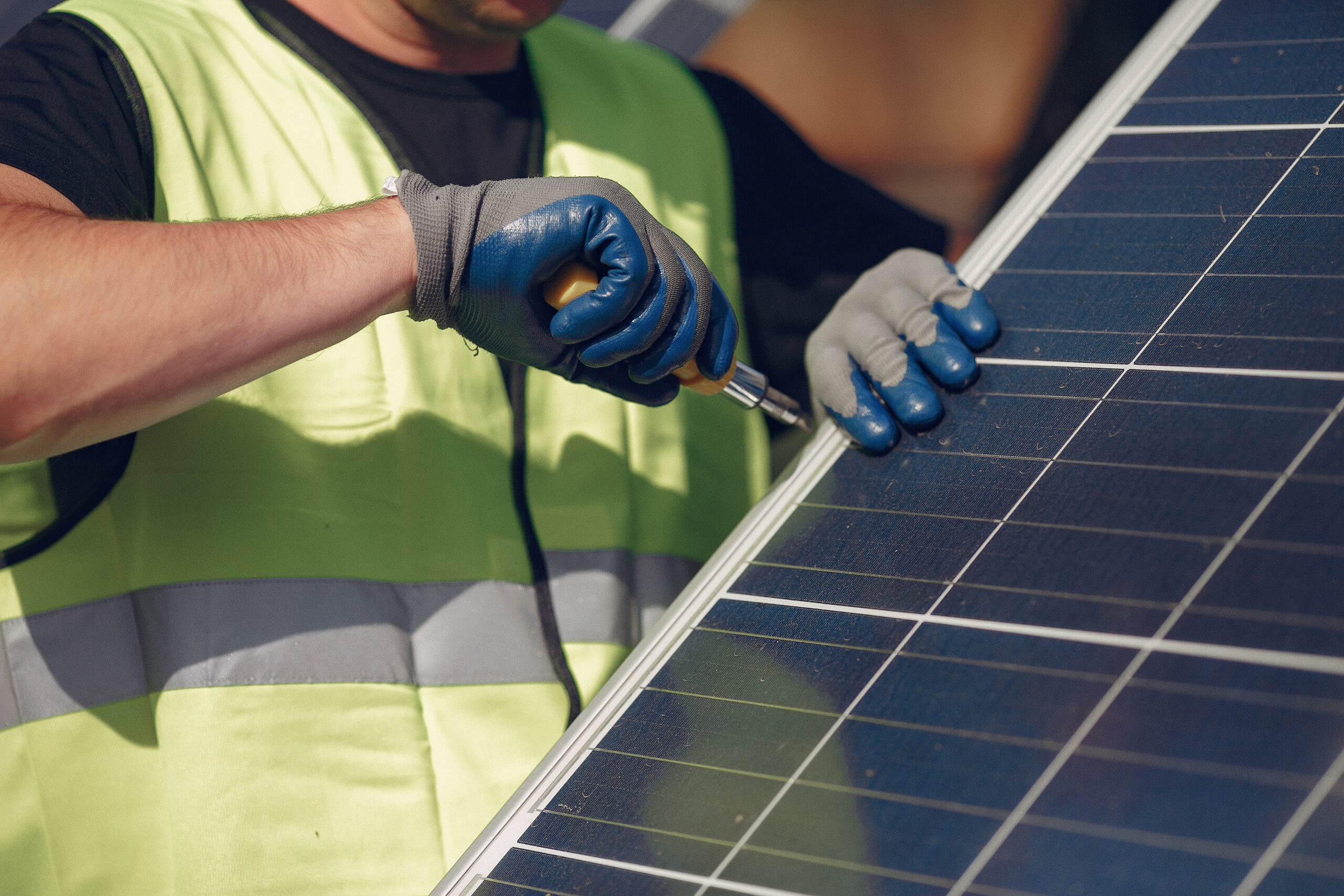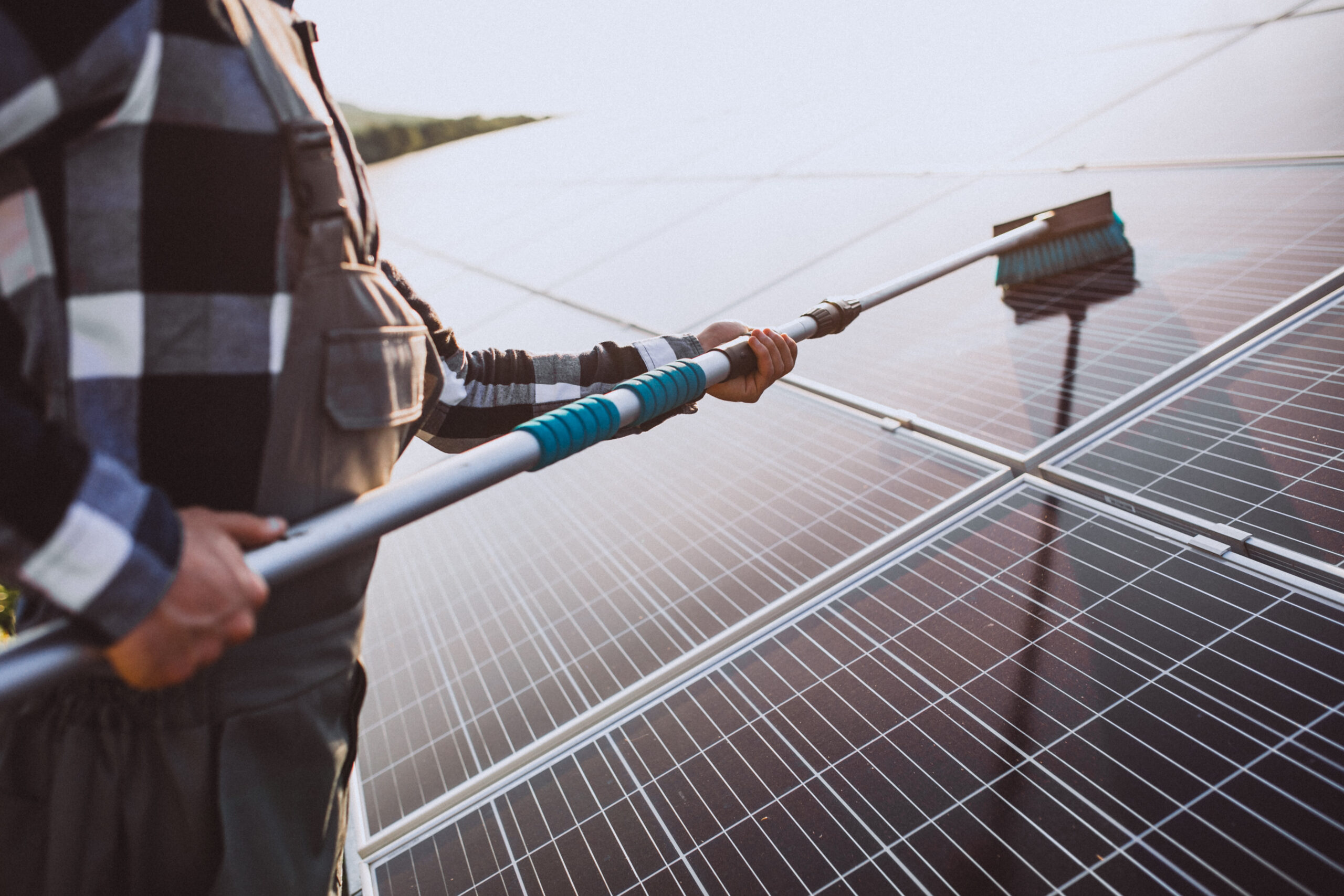Solar panels are an excellent way to save money on your energy bills while reducing your carbon footprint. However, to ensure that your solar panels are working efficiently, it’s essential to keep them clean. Dirty solar panels can reduce their performance by up to 30%, which means you’ll be losing out on potential energy savings. In this article, we’ll go over how to clean solar panels, step-by-step.
Step 1: Safety First
Before you start cleaning your solar panels, it’s crucial to ensure your safety. Make sure the solar panels are turned off and not generating any power while you’re cleaning them. If your solar panels are located on a sloped roof, use a harness and secure yourself to the roof for extra safety. Additionally, avoid cleaning your solar panels on a windy day or when the temperature is too hot, as this can cause thermal shock to the panels.
Step 2: Inspect Your Solar Panels
Before you start cleaning your solar panels, inspect them for any damage or defects. Look for any cracks or scratches on the surface of the panels. If you notice any damage, stop cleaning and contact a professional to assess and repair the damage. Cleaning a damaged panel can make the damage worse, and it could potentially cause harm to you.
Step 3: Gather Your Supplies
To clean your solar panels, you’ll need the following supplies:
- A soft-bristled brush or sponge
- A bucket of warm water
- A mild detergent or soap (such as dish soap)
- A squeegee or soft towel
Avoid using abrasive materials such as steel wool or scouring pads, as these can damage the surface of the panels.
Step 4: Rinse Your Solar Panels
Start by rinsing your solar panels with water to remove any loose debris, such as leaves or dirt. Use a hose or a bucket of water to rinse the panels thoroughly. Be careful not to use high-pressure water, as this can damage the panels.

Step 5: Apply Detergent
Next, mix warm water and mild detergent or soap in a bucket. Dip your soft-bristled brush or sponge in the solution and gently scrub the surface of the panels. Be careful not to use too much pressure, as this can damage the panels. Start from the top of the panel and work your way down, making sure you cover the entire surface of the panel.
Step 6: Rinse Again
After scrubbing the panels with the detergent solution, rinse them again with water to remove any soap residue. Make sure you rinse the panels thoroughly to ensure that no soap residue is left behind.
Step 7: Dry Your Solar Panels
Once you’ve rinsed the panels, use a squeegee or a soft towel to dry them. Start at the top of the panel and work your way down, making sure you remove all the water. Avoid using abrasive materials to dry the panels, as this can cause scratches.
Step 8: Check Your Solar Panels
After you’ve cleaned and dried your solar panels, check them again for any damage or defects. If you notice any damage or defects, contact a professional to assess and repair the damage.
Tips for Cleaning Solar Panels:
- Clean your solar panels in the morning or evening when the panels are cool. Cleaning them when they’re hot can cause the water to evaporate quickly, leaving behind mineral deposits that can reduce the panels’ efficiency.
- Avoid using harsh chemicals or detergents, as these can damage the surface of the panels and reduce their performance.
- If you’re unsure about how to clean your solar panels or if you’re uncomfortable cleaning them yourself, contact a professional solar panel cleaning service to do the job for you.
- Keep your solar panels free of debris, such as leaves, branches, and bird droppings, as they can reduce the panels’ efficiency over time.
- Regularly check your solar panels for any damage or defects, such as cracks or scratches. Fixing them promptly can prevent further damage and ensure that your solar panels continue to work efficiently.
Conclusion
Cleaning your solar panels is an essential part of maintaining their efficiency and longevity. By following the steps above, you can ensure that your solar panels remain clean and free of debris, which can significantly impact their performance. If you’re unsure about how to clean your solar panels or if you’re uncomfortable doing it yourself, consider contacting a professional solar panel cleaning service. With proper care and maintenance, your solar panels can continue to provide energy savings for years to come.

Furthermore, it’s important to note that cleaning your solar panels can also help you save money in the long run. By keeping your solar panels clean, you can maximize their efficiency, which means you’ll be generating more energy and saving more money on your energy bills. Additionally, by preventing damage or defects, you’ll avoid costly repairs or replacements in the future.
In conclusion
cleaning your solar panels is an easy and essential task that can help you maximize their efficiency and save you money in the long run. By following the steps outlined in this article, you can ensure that your solar panels remain clean and free of debris, which can significantly impact their performance. Remember to take the necessary safety precautions before starting, inspect your panels for damage, use the right supplies, and dry them thoroughly. With proper care and maintenance, your solar panels can continue to provide energy savings for years to come.
Thank you for taking the time to learn about how to clean your solar panels. By taking care of your solar panels, you’re not only ensuring that they work efficiently, but you’re also contributing to a more sustainable future. Solar panels are an excellent investment that can help you save money on your energy bills and reduce your carbon footprint. With proper cleaning and maintenance, you can maximize their benefits and enjoy the many advantages of solar power. Remember, cleaning your solar panels is an important aspect of their maintenance. By regularly cleaning your solar panels, you’re ensuring that they work efficiently, and you’re also prolonging their lifespan.
